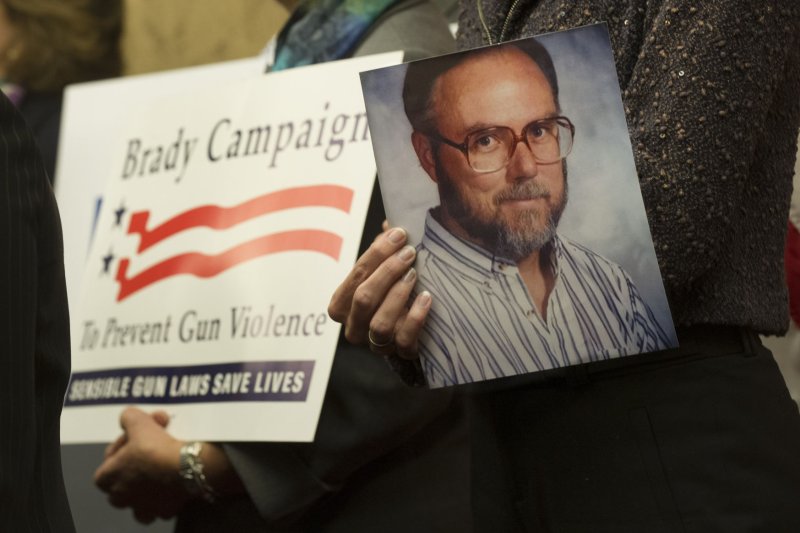A woman holds the photo of a victim of gun violence during an event to mark the 20th anniversary of the Brady Bill and to call on Congress to extend background checks to online gun show sales, on Capitol Hill in Washington, D.C. on November 13, 2013. UPI/Kevin Dietsch |
License Photo
CHICAGO, Feb. 17 (UPI) -- Researchers at the Johns Hopkins Center for Gun Policy and Research say the repeal of a Missouri law requiring background checks for handgun purchasers led directly to an increase in deaths by gun violence.
The study, which is set to be published in the Journal of Urban Health, estimates that the law's removal was responsible for an extra 55 to 63 murders per year, between 2008 and 2012.
Prior to 2008, Missourians in the market for a handgun had to be screened by the local sheriff and apply for a license. But the permit-to-purchase law was repealed in 2007, much to the delight of the National Rifle Association, which advocated for the law's removal.
Researchers say the connection between the revoked law and increased gun violence is clear. All imaginable variables were controlled for, they say, including changes and trends in policing levels and crime rates, as well as rises in unemployment and poverty.
"This study is compelling confirmation that weaknesses in firearm laws lead to deaths from gun violence," Professor Daniel Webster, director of the research and policy center, told the BBC. "That upward trajectory did not happen with homicides that did not involve guns; it did not occur to any neighboring state; the national trend was doing the opposite."
Professor Webster was in Chicago speaking about the study this week at the annual meeting of the American Association for the Advancement of Science.
[BBC]







